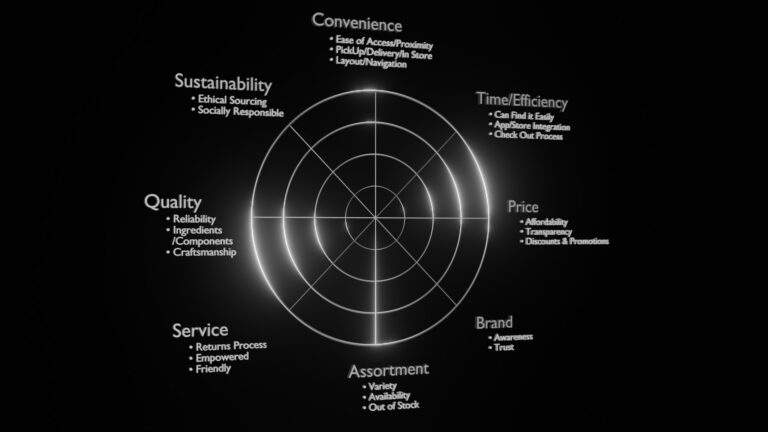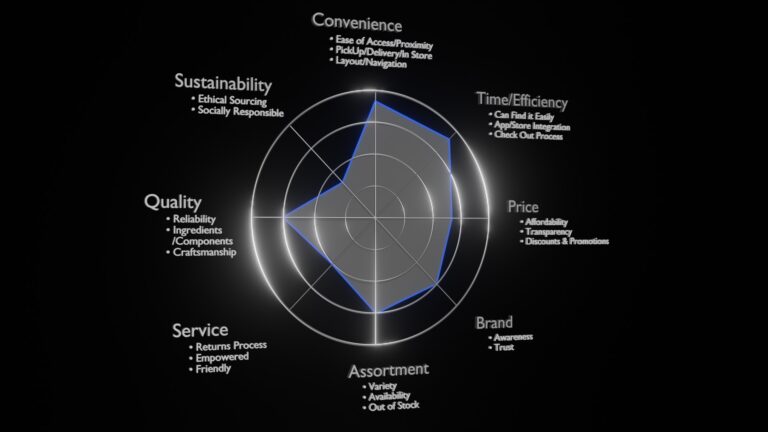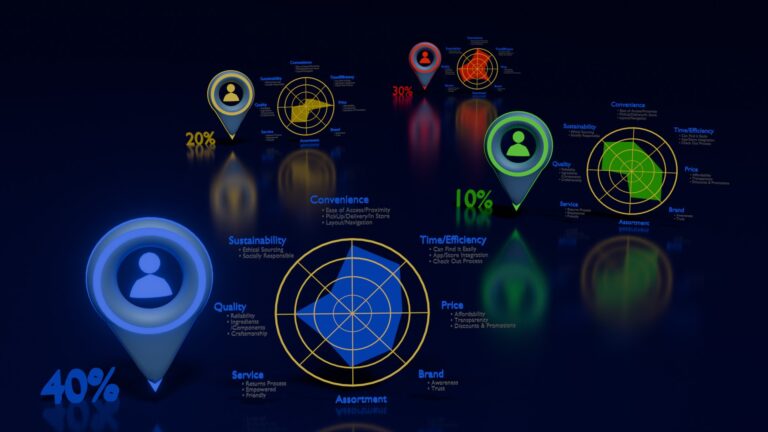Customer Segments
Identifying Customer Needs
Building Customer Segments
To generate robust Customer Segments requires data about the customer with connectivity to their preferences for the Customer Experience. This data can be acquired via survey and/or observed customer behavior. In addition, 3rd party data appends are helpful in providing the lattice to separate customers into groups when/as first party data assets are not available. With data acquired/assembled we work with teams to shape what are the dimensions that are most important to the customer in making decisions to stay with your company. It is important to note these dimensions will be different depending on the industry (i.e. retail banking, restaurants, grocery…) We’ve picked some illustrative dimensions in the pictures below.
Data
Assemble Data Assets
Importance
Define Customer Decision Dimensions
Segments
Separate Customers into Groups
A Single Customer
It always starts with the customer. We collect information about the customer into a high dimensional data asset. This information will be used to separate customers into different segments. This data asset will typically encompass first party and third party data assets. We will work with you to bring the full breadth of what is known about your customers to shape your customer segments.

What is Important...
We then take a closer look at what customers view as important when engaging with a retailer. In this step, we want to identify the standard set of importance dimensions that infrom customer decision making. These will be different by industry (e.g. Retail Banking, Pharmacy, General Merchandize, Auto, etc.) We use these importance dimensions as the basis to group customers with the same value system.

A Customer Segment
After curating data sets and building the importance factors, we calibrate Deep Learning and Machine Learning algorithms that “score” each customer for how influential that dimension/spoke is to their relationship with you as their retailer. By understanding what each customer wants in its relationship with you, you can make investments that will strengthen those customer relationships.

Multiple Customer Segments
With our importance dimensions defined, and our algorithms tuned, we score customers across these dimensions. We identify segments/groups that share similar values along each dimension. With each individual group having the same value system regarding what’s important in their relationship with a retailer, retailers can make better decisions regarding marketing, merchandizing and channel service offerings to better meet the needs of these diverse groups.
